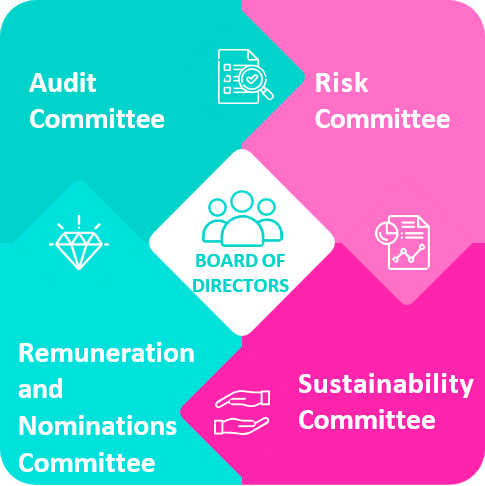Board of Directors
- Our Board now comprises 9 members, bringing a wealth of international experience and diversity
- Introduced more stringent independence criteria for Board members; 5 out of 9 independent and 3 women
- Gender diversity guidelines were approved for the Board, which require a minimum of 1 female director per committee, and 3 female directors at the main subsidiaries
- Underwent external assessment in 2023 and the conclusions were used to develop a plan of action for continued improvement
- Strengthened Digital and Fintech Investing Knowledge with new members designation
Committees
- 4 Board Committees
- The Corporate Governance Committee broadened its scope to become the Sustainability Committee
- The Board chairperson cannot chair any committees
- 3 of 4 committees are chaired by an independent director, and all 4 committees have at least one female member
